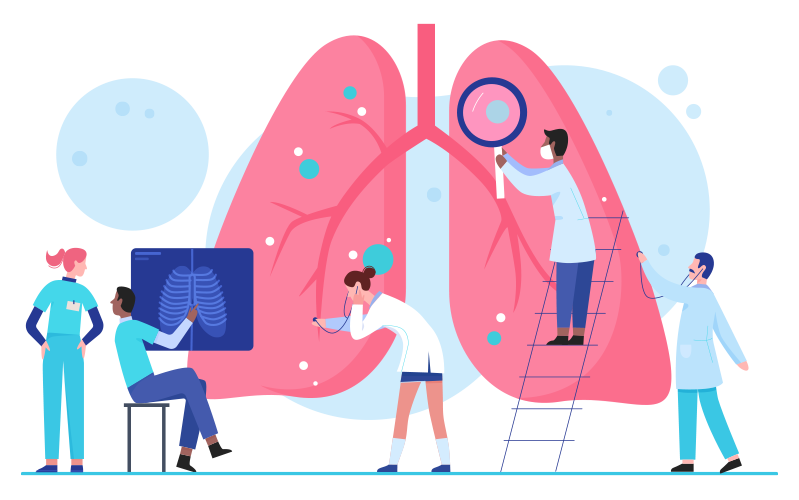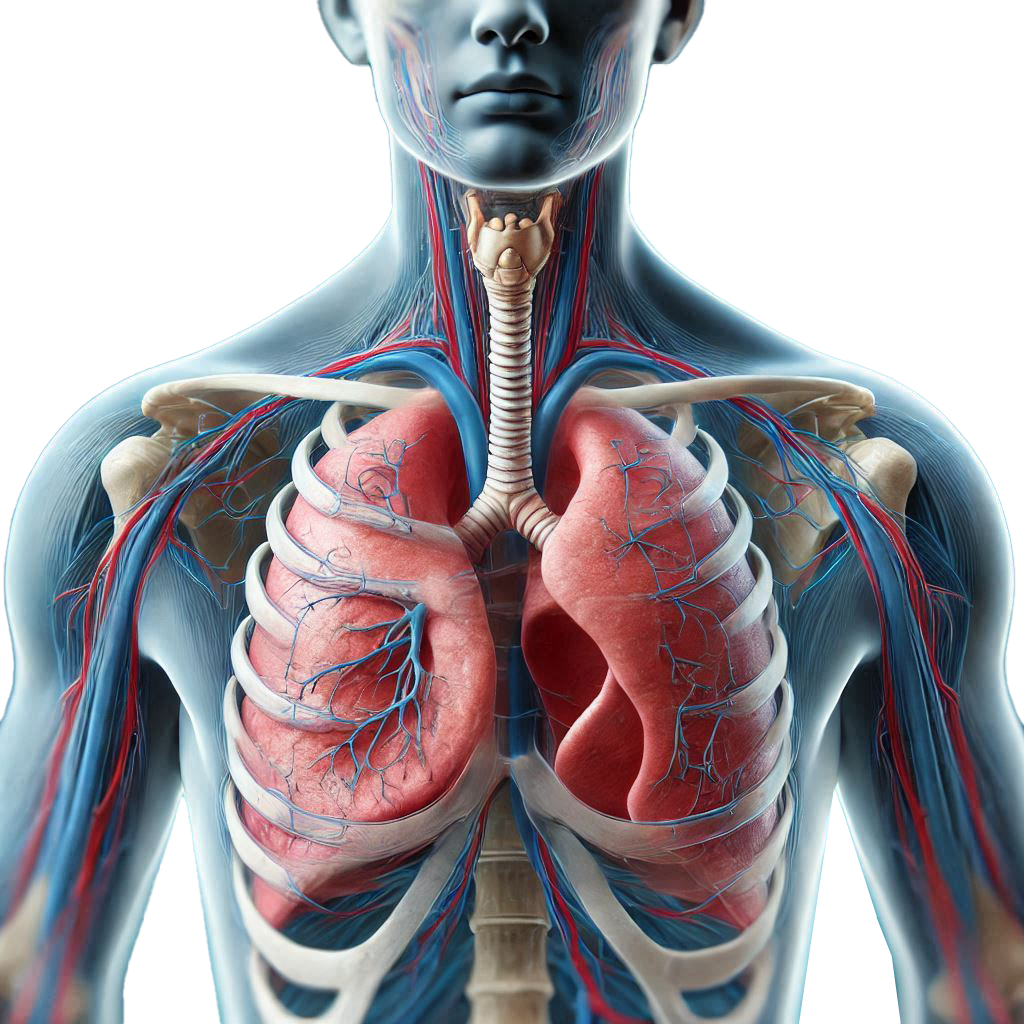This Course Structure is Curated as per the NEP-2020 Guidelines
Course Overview
B.Sc. Respiratory/Pulmonology Technology program at Malla Reddy Vishwavidyapeeth, Hyderabad, is an undergraduate course designed to train students to assist Pulmonologists in the diagnosis, treatment, and management of respiratory disorders.
This program focuses on equipping students with the theoretical knowledge and hands-on skills from 1st semester itself. The curriculum covers a deep understanding of the anatomy and physiology of the respiratory system, the pathophysiology of pulmonary diseases, and critical care management. The course emphasizes performing pulmonary function tests (PFTs), managing ventilators, administering oxygen therapy, and providing care to patients with conditions such as asthma, chronic obstructive pulmonary disease (COPD), pneumonia, and respiratory failure. Students gain hands-on experience in intensive care units (ICUs) and respiratory therapy labs, ensuring they are well-prepared to assist pulmonologists.
Graduates of this program emerge as skilled ‘Respiratory Technologists’, enabling them to pursue further higher studies & do research in Urology Technology along with plenty of job opportunities globally.

Course Details
Description: 4 Years Degree Program
No. of Seats: 40
No. of Credits: 160 minimum & as specified
- Eligibility
- Curriculum Structure
- Program Outcomes
- Career Enhancement
- Higher Studies
- Job Roles & Progression
The minimum eligibility for B.Sc. Respiratory/Pulmonology Technology is a pass in 10+2 with at least 50% in Physics, Chemistry and Biology from a recognized board (CBSE/ISC) or equivalent.
| Semester | Name of the Subject |
| Semester 1 | Anatomy – I Physiology – I Biochemistry – I Medical Physics Computer Applications Practical: Anatomy & Physiology – I English & Communication Skills Computer Applications |
| Semester 2 | Anatomy – II Physiology – II Biochemistry – II Introduction to Respiratory Technology Legal Aspects of Healthcare Practical: Anatomy & Physiology – II |
| Semester 3 | Pathology Pharmacology Respiratory Diagnostics I Microbiology Communicative English Healthcare Administration Environmental Studies |
| Semester 4 | Advanced Respiratory Diagnostics Pulmonary Function Testing Respiratory Therapeutics Indian Constitution Practical: Respiratory Diagnostics Project Centric Learning (PCL) |
| Semester 5 | Critical Care in Respiratory Technology Applied Respiratory Therapeutics Quality Assurance in Respiratory Care Practical – Respiratory Procedures Project Centric Learning (PCL) |
| Semester 6 | Advanced Respiratory Care Mechanical Ventilation Techniques Pulmonary Rehabilitation Practical – Advanced Respiratory Technology Internship |
| Semester 7 | On-Job Training and Internship |
| Semester 8 | On-Job Training and Internship |
- Patient Preparation and Monitoring: Preparing patients for respiratory procedures, monitoring vital signs, and administering respiratory treatments.
- Operation of Respiratory Equipment: Operating ventilators, CPAP, BiPAP, and other respiratory devices.
- Pulmonary Function Testing: Conducting and interpreting spirometry, gas diffusion, and other pulmonary function tests.
- Critical Care Management: Monitoring and supporting patients on mechanical ventilation in ICUs.
- Equipment Maintenance: Cleaning, calibrating, and troubleshooting respiratory care equipment.
- Certification in Pulmonary Function Testing (PFT): Specialized training in spirometry, lung volume measurements, and other PFT techniques.
- Advanced Life Support (ALS) Certification: Emergency response skills, especially valuable in ICU and critical care settings.
- Certification in Respiratory Therapy: Advanced training in therapeutic techniques for respiratory care, including CPAP, BiPAP, and mechanical ventilation.
- Certification in Sleep Technology: Training in conducting sleep studies and managing sleep-related respiratory disorders.
- Palliative Care Certification: Specialized training in managing patients with chronic respiratory diseases requiring palliative care.
- Master’s in Respiratory Therapy or Pulmonology: Advanced training in respiratory diagnostics and therapies.
- Postgraduate Diploma in Critical Care: Focused training on critical care skills, particularly for respiratory patients.
- MBA in Healthcare Management: Combines healthcare and business knowledge, ideal for managerial roles in healthcare.
- Ph.D. in Respiratory Sciences: Research-focused degree in respiratory science, contributing to academic and clinical advancements.
- Certification in Sleep Medicine: Specializes in managing sleep-related respiratory disorders, such as sleep apnea.
| Duration | Roles and Responsibilities | Salary Range |
| 0-3 years | Respiratory Technician | ₹3,00,000 – ₹5,00,000 per annum |
| 3-5 years | Senior Respiratory Therapist, Pulmonary Function Technologist | ₹5,00,000 – ₹8,00,000 per annum |
| 5-10 years | Critical Care Respiratory Specialist, Respiratory Therapy Supervisor | ₹8,00,000 – ₹12,00,000 per annum |
| 10+ years | Director of Respiratory Services, Chief Respiratory Therapist | ₹12,00,000+ per annum |
Note: Salaries vary depending on experience, location, and institution.

Fee Structure Per Academic Year - 2025
| Tuition Fee | Miscellaneous Fee | Scholarship | |||
| 150000 ₹ | 15000 ₹ | Above 95% – 150000 ₹ | Above 91% – 75000 ₹ | Between 81-90% – 15000 ₹ | Between 71-80% – 7500 ₹ |
| Tuition Fee | Miscellaneous Fee | Scholarship | ||
| 150000 ₹ | 10000 ₹ | Above 90% – 30000 ₹ | Between 80-90% – 15000 ₹ | Between 70-80% – 7500 ₹ |




